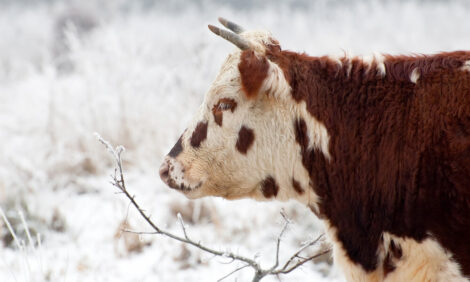



Unions Concerned by EU Feed Import Policy
UK - UK farming unions have expressed concern over EU policy on the importation of animal feed, saying it could have significant negative implications for the farming industry.As representatives of the largest markets for protein feed in the UK, the Ulster Farmers’ Union, along with the National Farmers’ Union, NFU Scotland and the National Pig Association are concerned about the serious implications for the UK livestock sectors of the European Union zero tolerance policy for as yet unapproved Genetically Modified Organisms (GMOs).
The UFU says that disruption to trade created when low level presence of non-approved GM material is found in shipments to the EU has created feed price increases that could threaten UFU members’ businesses. In a joint letter issued this week to DEFRA, the UFU and UK Farming Union’s highlight that margins in the pig and poultry sectors are very tight, with feed making up a large proportion of costs.
Latest estimates are that the UK livestock industry could face additional feed costs upwards of £30m for soya rations alone because of the EU policy on imports.
The farming unions highlight that ironically reduced supply in the EU will be substituted with livestock from third countries that are fed the very same feed which UK farmers are not allowed to use. As the acreage of GM crops increases in major exporting countries and new varieties are planted, the likelihood of this occurring will increase, as will the cost to UK producers.
NFUS recently wrote to Scotland’s Cabinet Secretary for Rural Affairs, Richard Lochhead, seeking his support for more acceptable GM tolerance levels. This week, NFU Scotland along with the Ulster Farmers’ Union, National Farmers’ Union of England and Wales, and the National Pig Association wrote to Defra ministers on the same subject.
NFU Scotland Vice-President, Allan Bowie said, "A practical solution to the issue of low level GM presence in feed imported into the EU must be found if livestock producers are to be spared from seeing their tightening margins eroded by animal feed costs that have been inflated by dithering in Europe.
"Demanding zero tolerance levels of non-approved GM crops in imported animal feed is unjustifiable on scientific and food safety grounds and is symptomatic of Europe’s muddied approach to the whole GM debate. Although tolerance levels have been on the European agenda for several years, we need our representatives to break the political deadlock, move this forward, and stop the unscientific policy-making that characterises GM regulation in Europe."
Mr Bowie said that many of Scotland's livestock producers – whether cattle, sheep, pigs or poultry – are limited by climate and geography in the types of protein feeds that they can grow at home. They are reliant on imported feed to ensure their stock receives the proper nutrition and at a cost that hopefully allows them to make a profit on their meat, milk and eggs.
TheCattleSite News Desk


